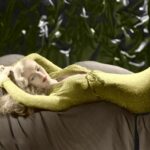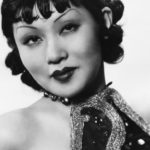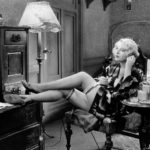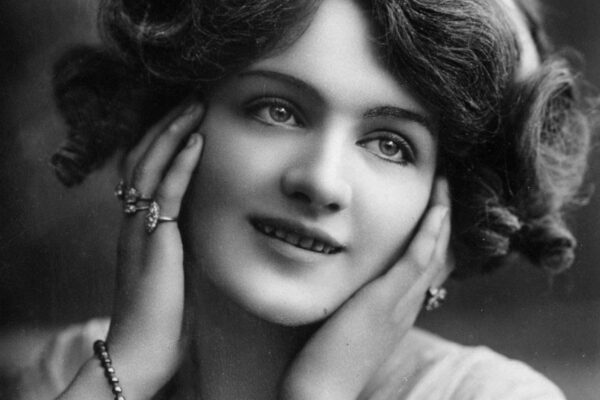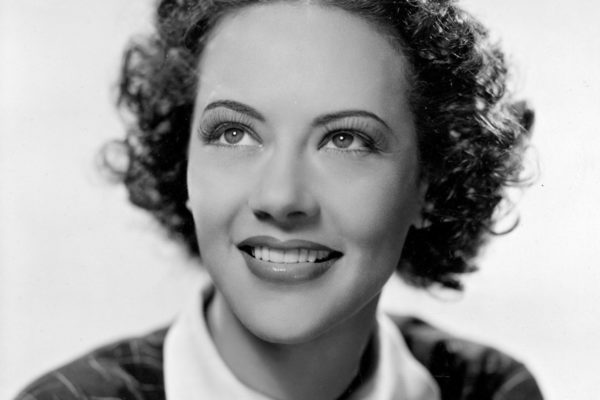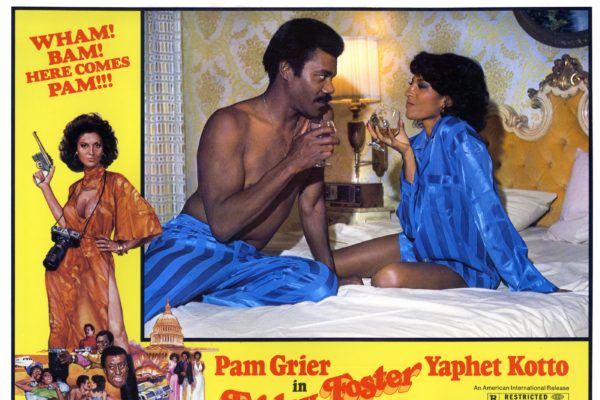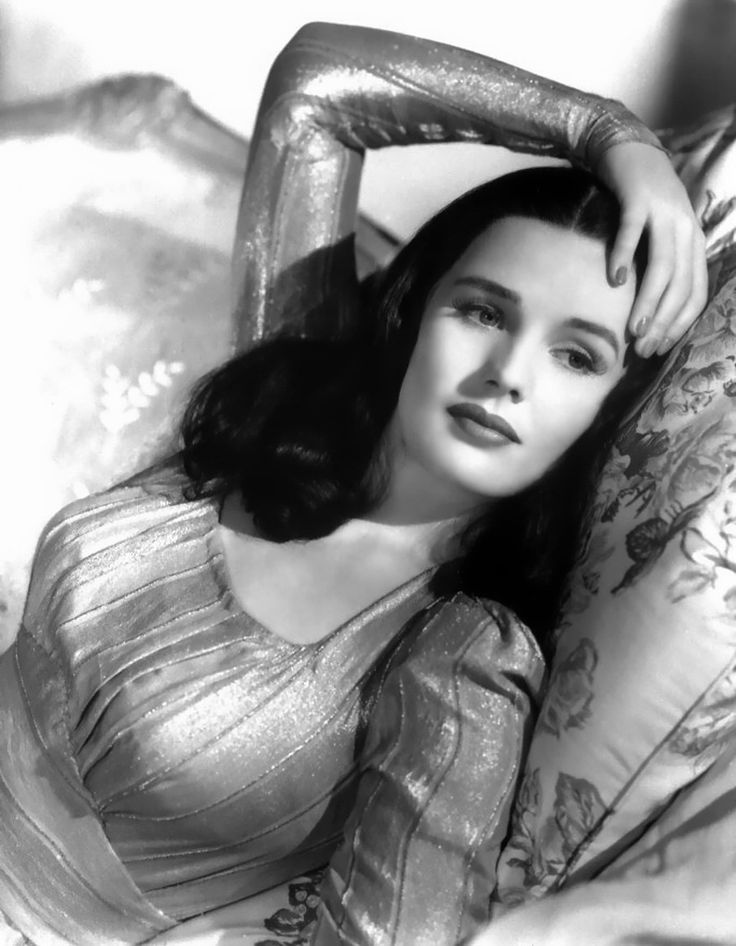
Even before she was famous, Frances Farmer had a bad girl reputation. In high school, she won a writing contest for her essay, “God Dies”, and was awarded a trip abroad to the Soviet Union in college, which she earned by selling subscriptions for a left-wing paper. She was a force to be reckoned with, heading straight for Hollywood…
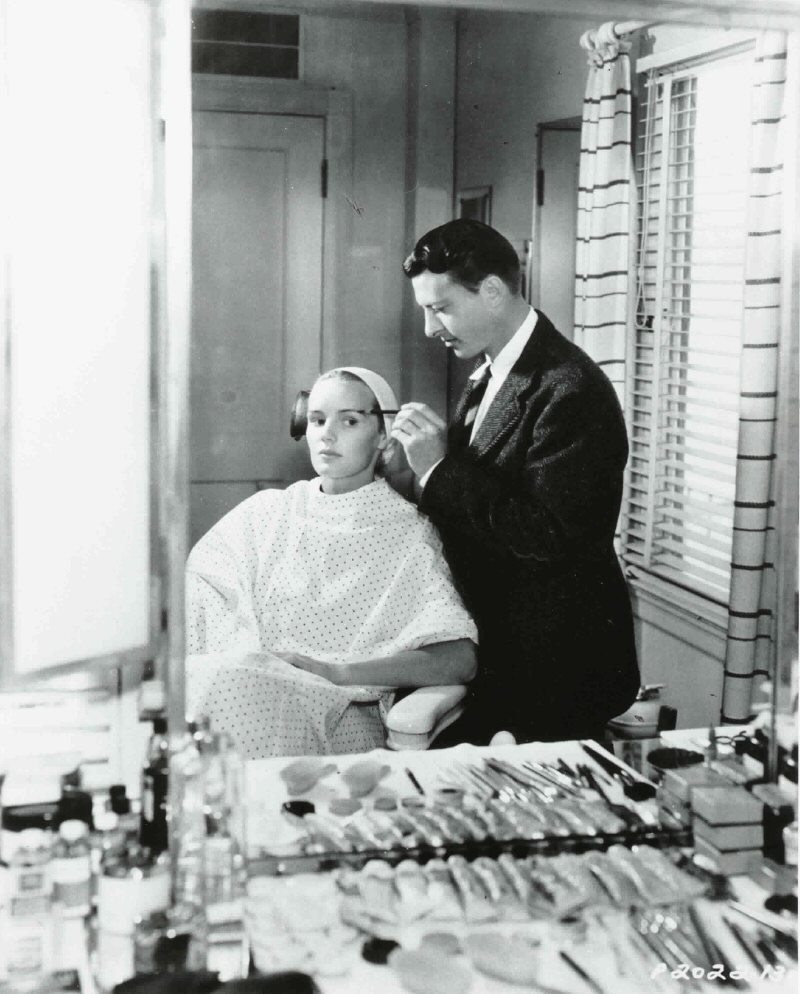
When Frances was discovered by an agent and signed a seven-year contract with Paramount Pictures at the age of 22, she became an immediate hit. But as quickly as she rose to fame, she began to resent the “star sculpting” process employed by all the big studios, including Paramount Pictures. They began to run her life, dictating which photo-shoots she did, what parties she visited, whom she associated with. Some even say that Paramount Pictures arranged the marriage between Frances and her first husband, another actor for Paramount Pictures, Leif Erikson.
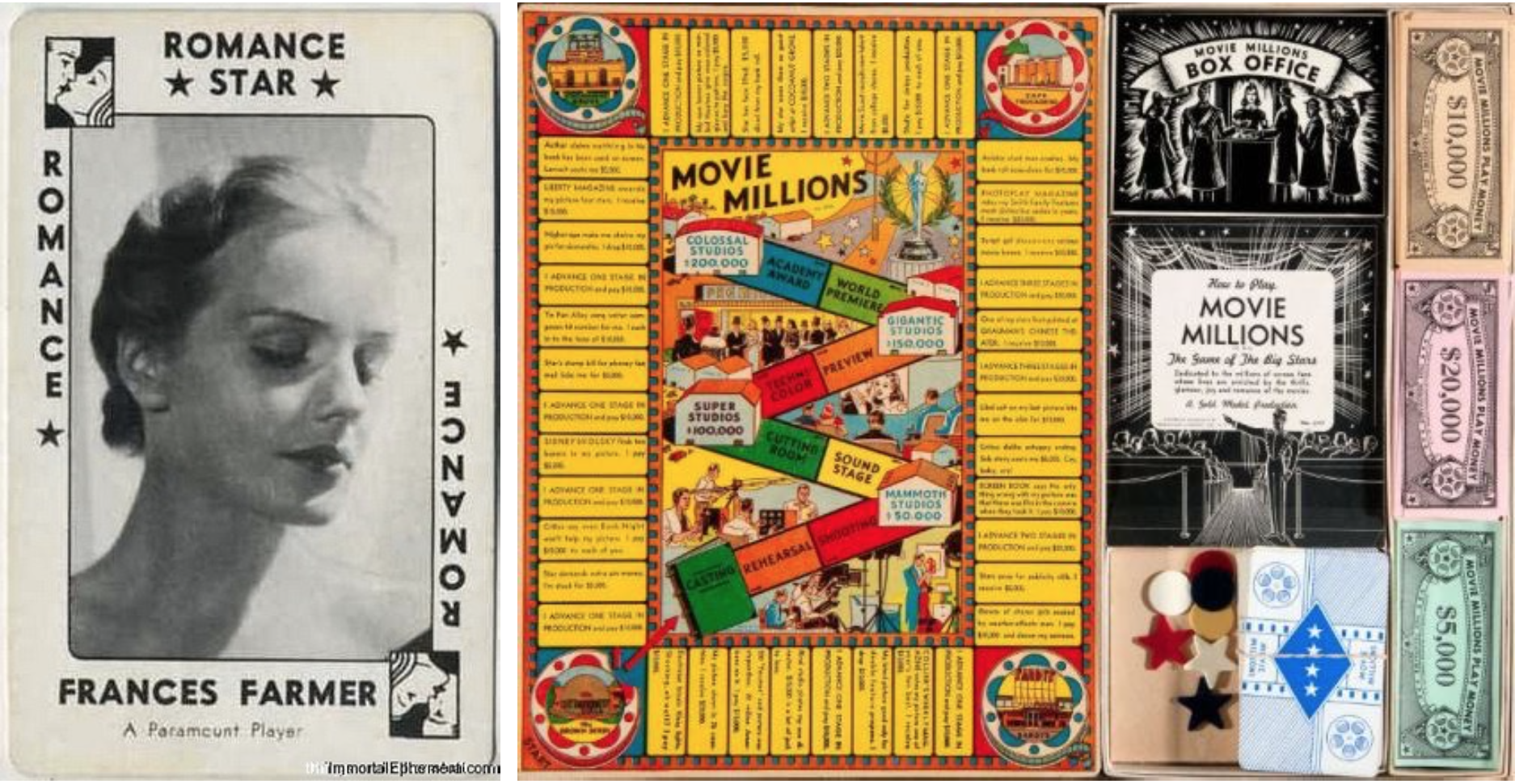
Frances’s playing card in a Paramount Pictures’ celebrity board game.
In one of her big commercial successes, Frances played alongside Bing Crosby in Rhythm on the Range. And Paramount Pictures “loaned (her) out for the Howard Hawks film Come and Get It (1936). Hawks called her ‘the greatest actress I have ever worked with.'”
Feeling somewhat empowered by her Hollywood success in those two highly visible roles, Frances began to reject more and more the role of Paramount Picture’s beautiful puppet.

Things started to go south quickly, including her marriage to Leif and her affair with one of her married stage directors, Clifford Odets. She had expected Clifford to leave his wife for her, but instead he cut off his affair with Frances. Over the course of the next five years, things only got worse.
Frances’ once-so-promising film career stalled. She developed addictions to alcohol and Benzedrine, probably not helped by the fact that Paramount had encouraged her to use prescription amphetamines to regulate her weight.
“At the time, the drug was widely available and often recommended by doctors as an appetite suppressant. Not until the 1970s was it discovered that amphetamines are highly addictive, have unpredictable side effects, and — taken in sufficient quantities — can produce symptoms similar to those of schizophrenia.”¹
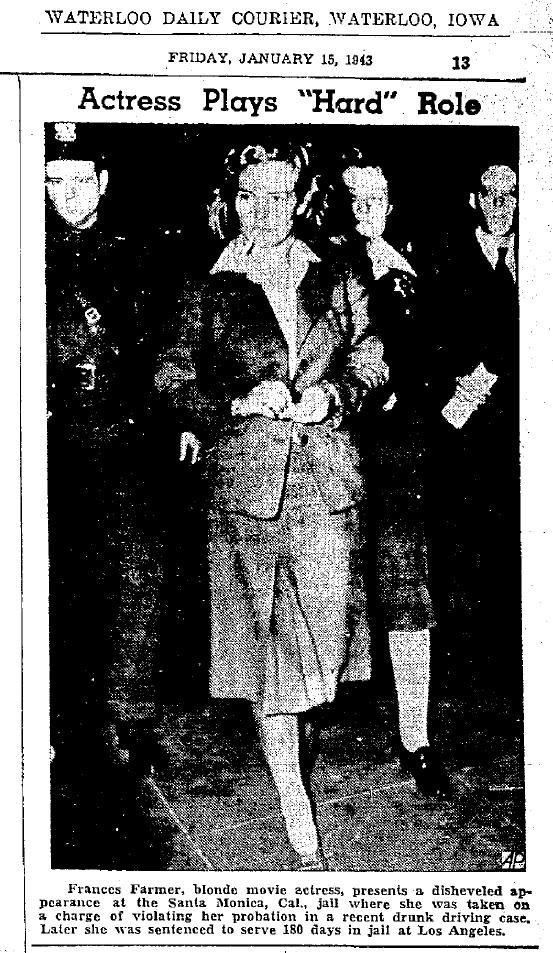
One night in the early fall, the police stopped her for driving with her brights on inside a blackout zone during wartime when everything was supposed to be dark. Being the contrarian she was, Frances wouldn’t oblige without a fight, and she landed in jail.

She was arrested a second time when she socked her hairdresser in the jaw. When police came to apprehend her, she was found at the Knickerbocker hotel and had to be dragged out.

Once arrived at the station, upon being asked her profession, she responded, “cocksucker.”
In court, she didn’t even try to hide her contempt for the system…
Police Judge Marshall Hickson: Miss Farmer, were you fighting at the Hollywood Knickerbocker Tuesday night?
Farmer: (calmly, sarcastically) Yes. I was. I was fighting for my country and for myself.
Light laughter in the courtroom.
Hickson: Control your mouth, Miss Farmer. Have you driven a car since you were put on probation?
Farmer: No I haven’t. But only because I couldn’t get my hands on one.
Sounds in the press gallery of pencils scratching on pads.
Hickson: Since you appeared in this court October 24th, have you had anything to drink?
Farmer: (loudly) I drank everything I could get, including Benzedrine.
Hickson: (raising voice) You were advised that if you took one drink of liquor or failed to be a law-abiding citizen —
Farmer: (louder) Listen, I get liquor in my milk. I get liquor in my coffee and in my orange juice. What do you expect me to do, starve to death?
Hickson: (standing, shouting) 180-day sentence to be served in the Los Angeles County jail! Immediately!
Farmer: Fine!
Hickson: (beet-red, leaving the bench) Take her to jail.
Farmer: But I haven’t any lawyer.
(no answer)
Farmer: (louder) What I want to know is, do I have any civil rights?
(no answer)
Farmer: (turning to the cop next to her) I want my phone call.
COP: Nope.
After this interaction, the police had to, again, take her away yelling and screaming. This time she called out, “Have you ever had a broken heart?”
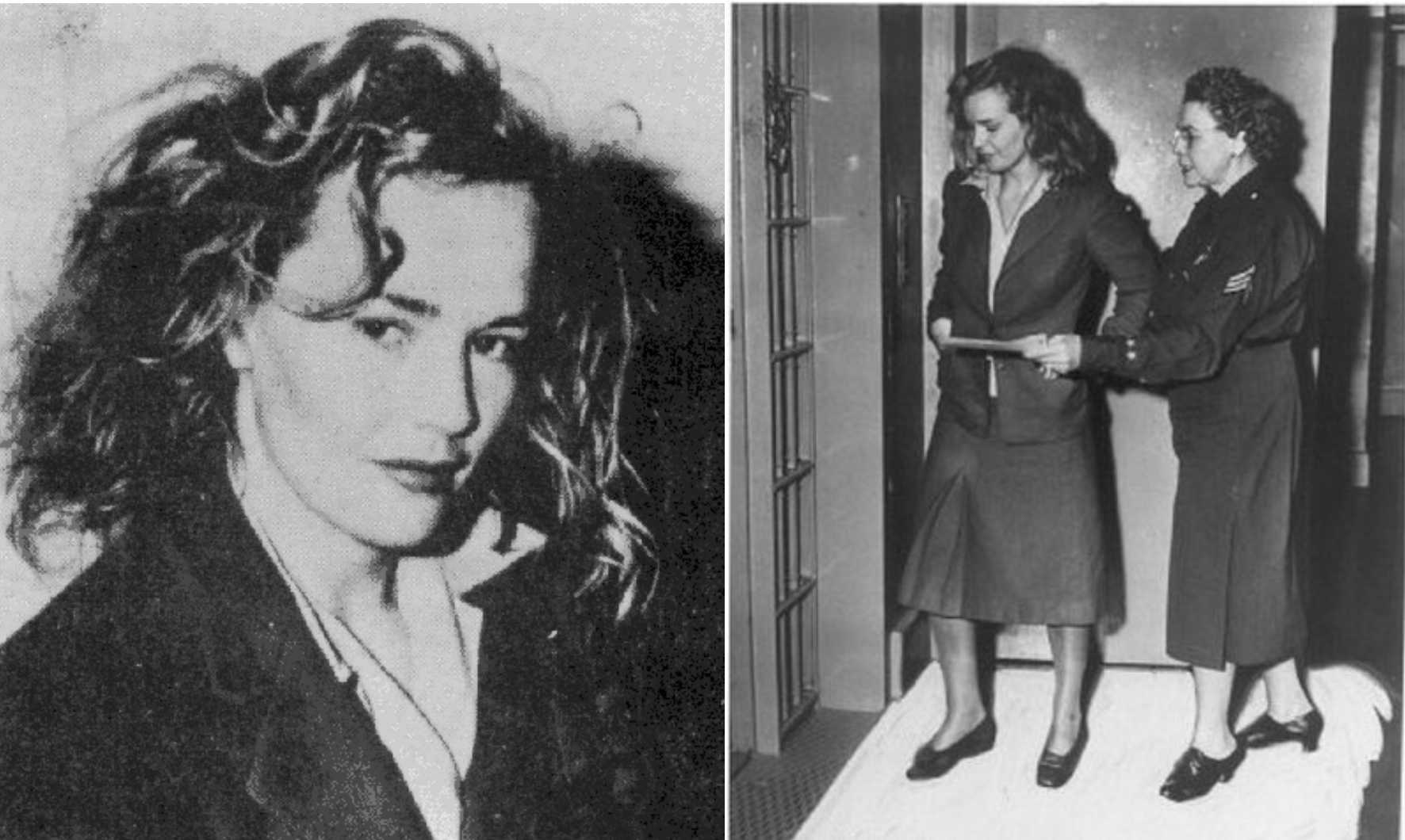
Soon after, she wound up being transferred at the doing of family members to Kimball Sanitarium in La Cresenta, CA. Although this was meant to help her, it may have actually just sent her further down her downward spiral. The doctors there said she had paranoid schizophrenia. In line with the times, she endured insulin shock therapy as a “treatment.” Eventually, Frances’ mother, with whom she had a miserable relationship, obtained legal guardianship over her daughter, who was 30 years old at this point.
Her mother checked her into Western State Hospital in Steilacoom, Washington where Frances endured electro-convulsive therapy. This time, she was let out after only three months.

Western State Hospital in Steilacoom, Washington, where Frances Farmer was a patient, had numerous complaints about patient neglect, brutal abuse and poor living conditions. It was abandoned in 1965. Image (c) Tom Carmony
Frances wound up being arrested later in CA for “vagrancy” after running away from the ranch of her aunt in Nevada. It broadcasted all over the media as per usual and Farmer was recommitted to Western State Hospital, her third incarceration, where she stayed for five years.
“Her stay in Western State Hospital was “unbearable terror”, says Farmer in Will There Really Be A Morning, “I was raped by orderlies, gnawed by rats and poisoned by tainted food. I was chained in padded cells, strapped into straight jackets and half-drowned in ice baths”. It was claimed in a biography called Shadowland that Farmer had undergone a brain lobotomy at the hospital, but this was later revealed to have been fictionalised.
After her release, Frances “took a job in the laundry department at Olympic Hotel in Seattle. Ironically, this was the same hotel where Farmer had been honored at the world premiere of her film Come and Get It back in 1936. “²
In an interview with Modern Screen magazine, Frances said, “I blame nobody for my fall … I think I’ve won the right to control myself”.”
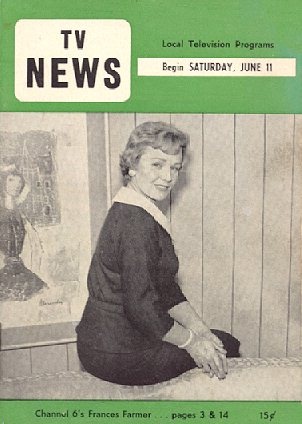 She then had a second career burst of success in entertainment on a daytime television show, hosting the show Frances Farmer Presents. She received mostly good attention from the community this time, for once in her life but when she showed up drunk one morning and slurred her speech on air, her time on TV was up. By this time she was living in Indianapolis.
She then had a second career burst of success in entertainment on a daytime television show, hosting the show Frances Farmer Presents. She received mostly good attention from the community this time, for once in her life but when she showed up drunk one morning and slurred her speech on air, her time on TV was up. By this time she was living in Indianapolis.
She finished up her acting career as resident actress at Purdue University, where she took a role portraying the character of the richest woman in the world, who also happened to be crippled with a wooden leg and ivory hand.
Frances was arrested one last time for driving while intoxicated, but this time gave quite the performance for her arresting officers and took on the character from her play, acting as the rich crippled woman, reciting lines from the play. The story was all over the media, again. Farmer was deeply embarrassed, but the next night, the play was sold out.
“[T]here was a long silent pause as I stood there, followed by the most thunderous applause of my career,” wrote Frances in her autobiography. “[The audience] swept the scandal under the rug with their ovation.” It was “my finest and final performance. I knew I would never need to act onstage again. I felt satisfied and rewarded.”
Frances never acted again. Instead, she focused on writing her autobiography and contrary to her anti-religious stance in her youth, joined the Catholic faith… and a Catholic bowling team.
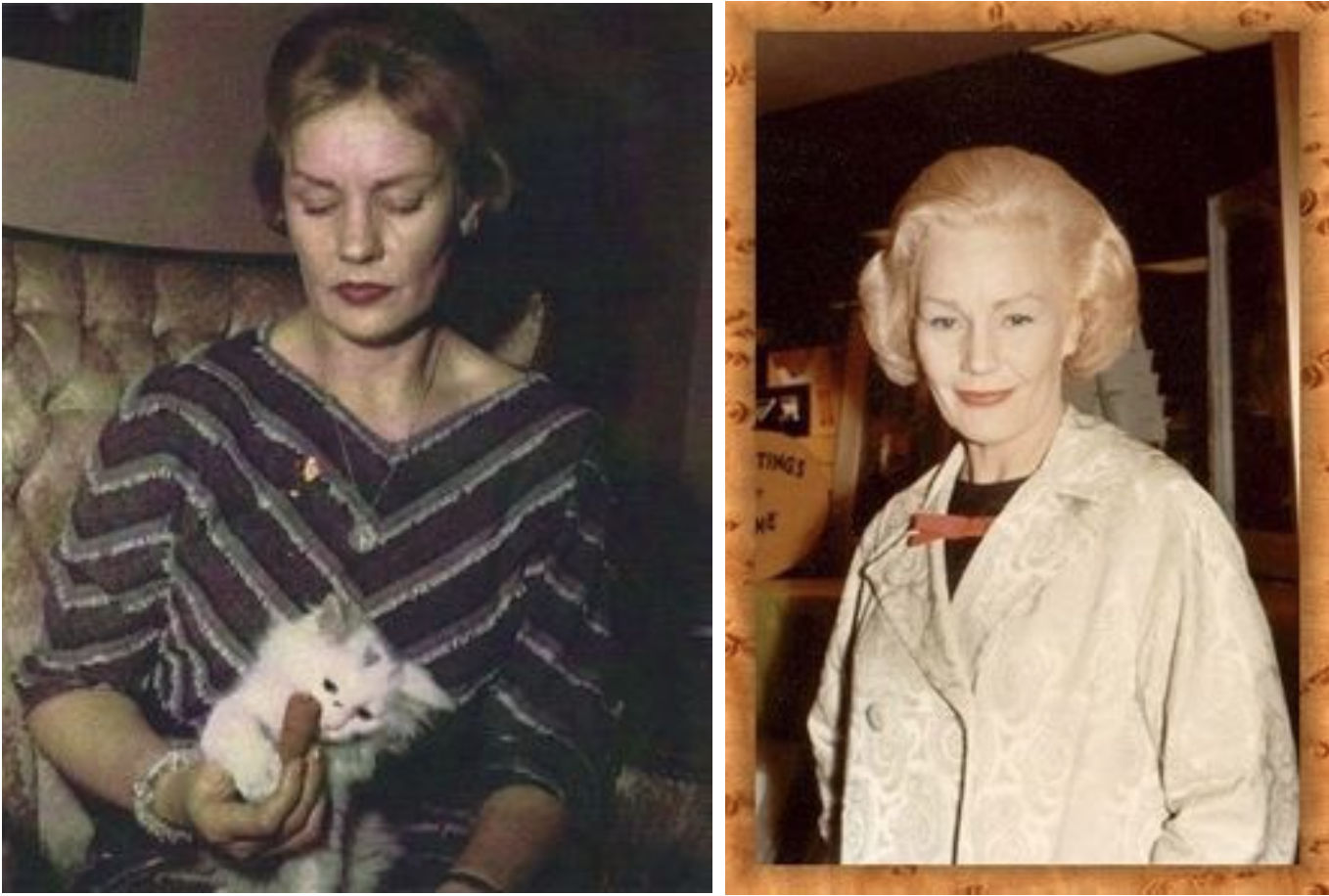
Frances Farmer was diagnosed with throat cancer and died at the age of 56, in 1970. She lived a brave and melancholy life, and she endured things that, for many, would have been unendurable.

Regarded as the poster child of fallen Hollywood starlets, there are currently three books and three films about the life of Frances Farmer, one starring the fantastically cast Jessica Lang in Frances (1982). In the 1990s, Farmer became somewhat of a muse for the grunge movement when Kurt Cobain was inspired by the actress and likened himself to her in his song, “Frances Farmer will Have Her Revenge on Seattle.”
In this footage, Kurt Cobain talks about her tragic story…
She might have been Hollywood’s first wild child or the first bad girl of the silver screen, but she certainly wouldn’t be the last…
About this Contributor
Wallace Kalkin is currently a student at Barnard College, Columbia University in New York City, but escapes to Paris any chance she can get. She loves exploring, reading, and people watching. Her mother still has to tell her to stop staring.
You can contact her through email: wk2265@barnard.edu



